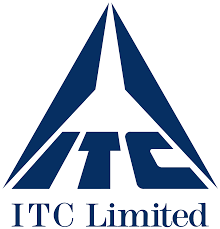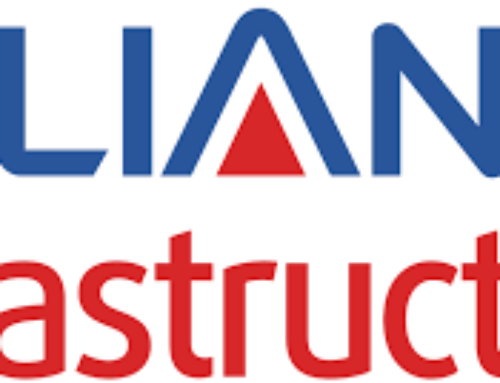Industry Overview: Indian Tobacco, introduced by the Portuguese in the 17th century, is appreciated worldwide for its rich, full-bodied flavor and smoothness. It is now an increasingly well-known and respected commodity in global tobacco markets and has found its way into cigarettes manufactured in several countries. Due to this, Tobacco is one of the major commercial crops in India. Despite the health hazards, the tobacco industry contributes significantly to the economy in terms of employment, income, and government revenue. It was the second-largest sector in terms of central excise revenue contribution after the oil and gas sector. The industry also acts as a significant foreign exchange earner for the Government. Besides tobacco farming and production, the Indian tobacco industry also consists of companies involved in the manufacturing, selling, and distributing of tobacco products like cigarettes, cigars, beedis, and chewing Tobacco.
The Tobacco Board of India is a facilitator for tobacco growers, traders, and exporters. By creating synergies between these stakeholders, the Board fosters a vibrant enterprise with a deep social conscience and solid national commitment. The Board estimates demand and regulates the production of FCV tobacco to match demand to ensure a fair product price.
Exports of Indian tobacco and tobacco products have witnessed steady growth. Exports rose at a CAGR of 9.0 percent to US$ 918.9 million in 2014–15 from US$ 502.2 million in 2007–08. In 2014–15, India exported 246 million kgs of tobacco and tobacco products. India ranks third in terms of production of Tobacco and exports, after Brazil and the US. Indian Tobacco is exported to about 100 countries. India exports unmanufactured Tobacco primarily to Western Europe, South and Southeast Asia, East Europe, and Africa. Western Europe is the key market for Indian tobacco exports.
The fiscal year ended March 2015 was another challenging year for the Indian tobacco industry, continuing its challenging environment from FY14. The increase in excise duty induced pressure on the sales volume of cigarette companies in the sector. As a result, the tobacco production index saw marginal growth in FY15, lower than last fiscal year. The steep increase in excise duties and stringent packaging norms has contributed to the lower consumption, particularly of branded cigarettes. Of late, there has been a rise in the sale of illegal and counterfeit products in India. Price hikes by cigarette manufacturers in FY15 resulted in improved profit margins, despite a lower sales volume. However, the consistent rise in excise duty, illegal and counterfeit products and regulatory restrictions remain the biggest challenges for the organized players in the sector.
Company overview: ITC, a tobacco major, is one of the oldest companies in India. It is the company set up by the British American Tobacco (BAT) Global Tobacco giant.
In 1905, BAT set up Peninsular Tobacco. Peninsular was involved in cigarette manufacturing, tobacco procurement, and processing. It set up a full-fledged sales organization named the Imperial Tobacco Company of India Limited (Imperial) in 1910. BAT set up another cigarette manufacturing unit in Bangalore to cope with the growing demand in 1912. To handle the raw material (tobacco leaf) requirements, a new company called Indian Leaf Tobacco Company (ILTC) was incorporated in July 1912. The poor quality of Tobacco obtained from Bihar prompted ILTC to search for better alternatives, leading to the establishment of the South India Leaf Area (SILA) in Andhra Pradesh
By 1919, BAT had transferred its holdings in Peninsular and ILTC to Imperial. That company was the same ITC with a different name and also became the Holding company for the Indian business of BAT. As the demand for Tobacco is increasing and the revenue is also increasing, the company set up a distribution network for operation.
Around 1960, the Indian Govt forced MNCs to reduce their holding; the company Reduced parents’ assets and increased Indian holding to 25% from around 6% in 1969-70.
Also, ITC realized that as their single product strategy was not so good as it was not suitable for health and also subject to Increasing taxes by govt, the company decided to diversify into many other sectors around 1971. First was marine product export.
The name of the company was changed to ITC Ltd in 1974. In 1975, ITC started producing its cigarette brands wills filter, which became popular imminently. 1975, ITC set up the first hotel in Madras, Todas Chennai. The company diversified into the textile industry with Tribeni Handlooms in 1977. The same year, ITC set up Bhadrachalam Paperboards. In 1981, ITC diversified into the cement business and bought a 33% stake in India Cements from IDBI. However, this investment did not generate the synergies that ITC hoped for, and two years later, the company divested its stake.
In 1986, ITC established ITC Hotels, to which its three hotels were sold. It also entered the financial services business by setting up its subsidiary, ITC Classic Finance. In 1994, ITC commissioned consultants McKinsey & Co. to undertake a detailed study of the company’s businesses and make suitable recommendations. McKinsey advised ITC to concentrate on its core strengths and withdraw from agri-business where it was incurring losses. During the late 1990s, ITC decided to retain its interests in Tobacco, hospitality, and paper. ITC either sold off or gave up the controlling stake in several non-core businesses. ITC divested its 51% stake in ITC Agrotech to ConAgra of the US, the world’s fourth-largest company in the food business. ITC Zeneca, the seed manufacturing company and ITC Palm-Tech merged with the new agri-business entity. Tribeni Tissues (which manufactured newsprint, bond paper, carbon, and thermal paper) was merged with ITC.
SHAREHOLDING BSE Data
Financials and Ratios
[table id=11 /]
Future Prospects: ITC, a Tobacco major, is well placed in a critical Sector. Hardly anyone will say it, but I am writing that.
Addiction to Tobacco is challenging to Stop. No matter how much price you raise or how great caution you print on the box with bad photos. Your customers hardly stop using it, or they hardly switch to another company as they STOP them. So I am not supporting Smoking but Writing what I saw among my friends.
ITC is partly a lucky company as it owns all major big cigarette brands. Govt restrictions are helping them to reduce the increasing competition. You may call it Economic Moat, as Warren Buffett mentioned it. It is looking in perfect condition as the hospitality and FMCG business is starting to perform. Some brands like Aashirwaad aata, Yipee nudes, Sunfeast, engage Dio, Classmate, John player, Bingo, Superia, Vivel de will, Dark Fantasy, mint-o, for that matter. Rumors that Government will sell its 7% stake through SUUTI are remarkable.




